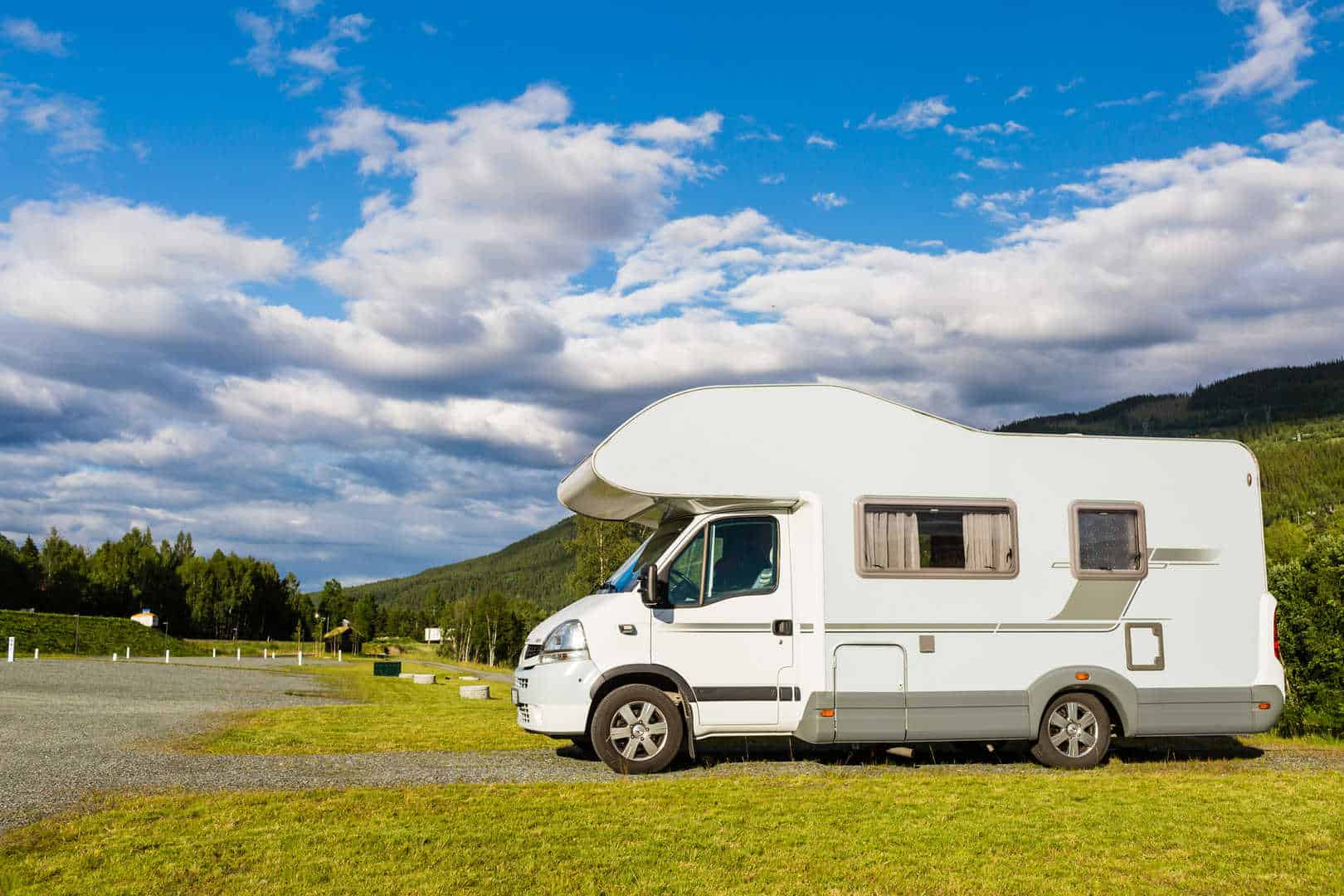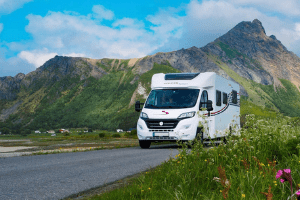Motorhomes don’t just get you from A to B — they’re a way of life. Not only can you explore coast and country, touring in a motorhome means being able to enjoy all your creature comforts too. With that in mind, it’s vital to find insurance that gives you affordable protection – so here’s what you can expect to pay and what you can do to drive down the cost of cover.
What does motorhome insurance cover?
What’s covered will depend on the policy you choose. For instance, third party, fire and theft will cover the cost of injury or damage done to other people and their property. You’ll also be covered if your motorhome is stolen or damaged by fire.
Crucially, third party, fire and theft won’t cover the cost of repairing or replacing your motorhome in the event of an accident. For greater levels of all-round protection, it’s well worth considering a comprehensive policy instead – it could also save you significant amounts of money in the long run. Not only do comprehensive policies typically include everything offered by third party policies, you’ll also be compensated for damage to your own vehicle too, even if an accident is deemed your fault.
When you’re weighing up the pros and cons between different types of motorhome insurance, it’s important not to judge a policy on price alone and to remember that many comprehensive policies insure other items as well — for example, your personal belongings, awnings and generators.
If particular features aren’t already included in your policy, you’ll be able to add on extras such as breakdown cover for a small charge. But no matter what policy you choose or additional features you pay for, it’s vital to read the terms and conditions set out so that you know exactly what is and isn’t covered.
What level of motorhome insurance do I need?
A key part of determining the level of cover you need is the value of your motorhome (also known as the sum insured) so it’s vital to provide insurers with an accurate figure.
The sum insured should be enough to cover the cost of replacing your motorhome, including any fixtures and fittings there are. If your policy also covers things like personal belongings, sat nav or an entertainment system, the sum insured should be enough to compensate you for these items too.
If the cover is arranged on a ‘new for old’ basis, the sum insured needs to reflect the cost of replacing your vehicle with a similar brand new model.
How much is motorhome insurance?
Motorhome cover can start from as low as £200* but premiums ultimately depend on your own unique circumstances as a number of points are taken into consideration.
One of the biggest factors affecting the cost of motorhome insurance, is the type of motorhome you have. Typically, the more expensive your motorhome, or the more equipment you have on board, the higher you can expect your premium to be as it’s likely to cost more to repair or replace. The same applies to motorhomes that are slightly unusual, for instance, if they’ve been self-built, converted or modified. The age of your motorhome may also influence your insurance premium.
As well as your motorhome, other factors that influence your premium can include:
- The sum insured — the higher this is, the more you can expect your motorhome insurance cost to be.
- Your age — younger drivers are statistically more likely to be involved in an accident compared to drivers with more experience so this is often reflected in higher premiums.
- How you use your motorhome — cover is likely to cost more if you take your motorhome abroad regularly or use it a lot because this could increase the risk of an accident or damage and a claim being made.
- Security — secure motorhomes attract more favourable premiums so it’s ideal if you can keep it in a locked garage or storage facility in-between trips, alternatively, a private driveway is another good option. If none of these are possible, investing in an alarm or immobiliser are other ways of boosting security.
- Your driving history — for the best premiums, you’ll need to have a clean driving record with no recent motoring convictions or endorsements (points).
- Your claims history — recent claims on your insurance can increase your premium.
- Insurance premium tax (IPT) — this is a tax payable on nearly all types of insurance, including motorhome policies. IPT is usually included in the overall quote price so you won’t need to add it on but it’s handy to know how it affects what you pay. Currently, it’s calculated as 12% of your premium, so the higher this is, the more you’ll pay in IPT. For example, if your policy cost £200, the IPT would be £24 making your total policy price £224. If your policy cost £250, the IPT would be £30 making the total price £280.
What is a motorhome insurance excess?
An excess is the amount of money you need to pay towards an insurance claim — there are two types: a compulsory excess that you have to pay, and a voluntary excess which is an amount you agree with your insurer when you buy a policy. Not all insurers offer a voluntary excess option. However, where they do, increasing your voluntary excess can help lower your overall premium, but it shouldn’t be so high that it’s out of reach. Where a voluntary excess has been selected you’ll have to pay both in order for a claim to go ahead.
For example, if you made a claim for £800 but your compulsory excess was £200 and your voluntary excess £150, you’d have to pay the first £350 while your insurer covered the remaining £450. Nearly all policies come with a compulsory and voluntary excess, but the amounts vary depending on the insurer so always check you can afford it.
A multiple excess could also apply depending on your circumstances, for example, if there is a young or inexperienced driver covered under the policy, your insurer might only provide cover on the basis that you also pay a ‘young driver’ excess too.
What exclusions or conditions do I need to know about?
An exclusion is an event not covered by your policy. Almost all policies will come with a set of exclusions as well as conditions you need to meet in order for the insurer to compensate you.
Common exclusions and conditions can include:
- Loss caused by you — you won’t be covered if a loss is a result of your actions, for example, if you leave your keys in your motorhome and it’s stolen as a result.
- Unreported theft — to make a claim for theft, you’ll need a crime reference number from the police.
- Tyre damage — most policies won’t cover you for punctures, cuts or damage because of hard or sudden braking.
- Damage caused by animals — this includes pets and vermin so if you’re taking any pets along for the ride, make sure they’re on their best behaviour.
- General wear and tear — policies won’t cover you for any damage that occurs naturally over time.
Do I need motorhome insurance?
Yes, all vehicles used on public roads must be insured by law under the Road Traffic Act. Drivers caught without an appropriate cover can face severe penalties including an unlimited fine or even a driving ban.
The only time you won’t legally need vehicle insurance, is if you’ve officially taken your motorhome off the road with a Statutory Off Road Notification (SORN). However, for peace of mind, insurance cover for loss of or damage to your vehicle is always recommended.
Tips for reducing the cost of motorhome insurance
Cost is always an important consideration, but it shouldn’t mean compromising on protection, here’s what you can do to help lower premiums without cutting back on cover:
- Avoid paying by instalments — this should save you additional interest charges.
- Be accurate with your mileage — if you overestimate your mileage, you could be unwittingly increasing your premium. Generally speaking, the more miles you do, the higher your premium is likely to be as there’s a greater chance of an accident occurring and a claim being made. It’s also worth noting that drastically under-estimating your mileage could mean your insurer refuses to pay out at all.
- Build up your no claims bonus — some insurers will offer you a discount for every year you go without making a claim so think carefully before claiming for every little scratch.
- Keep your motorhome secure — insurers tend to reward owners who invest in good security e.g. tracking devices.
How to find cheap motorhome insurance
As keen motorhome adventurers ourselves, we understand just how important protection and peace of mind really are. That’s why, together with our partners Aviva, we’ve designed a number of specialist motorhome policies to give you an unrivalled choice of cover along with value for money. That’s why our customers rate our service highly on Trustpilot.
You can start your Comfort Insurance quote online now or speak to a friendly and knowledgeable member of the team on 0208 9840 666.
*Over 10% of our Aviva Motorhome policyholders paid this amount or less for their annual premium between 1st Jan 19 and 31st Jul 19.













